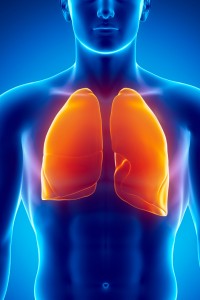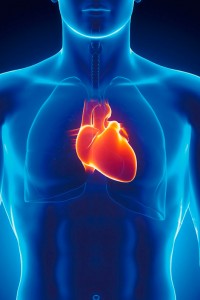Mesothelioma Types
Mesothelioma Attacks Different Parts of Your Body
Wherever it starts, mesothelioma’s initial target is always your mesothelium. The mesothelium is a thin sheet of cells (called mesothelials) that covers an organ in need of protection.
Mesothelioma can attack various parts of your body. It’s considered a different type of mesothelioma depending on where it occurs.
Mesothelioma usually begins its attack in one of these four places, according to the National Cancer Institute:
- Lungs
- Abdomen
- Heart
- Testicles

Pleural Mesothelioma
Mesothelioma that involves your lungs is labeled pleural mesothelioma.
Each of the two lungs in your chest is lined with a mesothelium, known as the pleura. Its purpose is to enable your lungs to expand and contract as you breathe without chaffing against the inner wall of the chest.
The pleura is made up of two separate, slickened membrane layers held together by surface tension. One layer clings to the lungs, the other to the chest wall.
Between the two layers is a very thin space containing a small amount of fluid. This fluid is the source of the surface tension that binds the layers to one another. Healthy mesothelial cells produce just the right amount of it.
Mesothelioma disrupts the normal operation of the pleura. One effect is the loss of the pleura’s ability to prevent friction where the lungs and chest wall meet. The friction results in pain with every breath.
Another effect is the overproduction of fluid. This is called a pleural effusion, and the liquid eventually finds its way into the lungs. The consequences for you are painful breathing, fever and chronic coughing.
The gravest effect of pleural mesothelioma is the potential for total respiratory failure. This means that your lungs stop working and you stop breathing.
This complication is responsible for most pleural mesothelioma deaths, according to the National Cancer Institute.

Peritoneal Mesothelioma
Mesothelioma that develops in your abdomen is called peritoneal mesothelioma.
The organs within your abdomen are protected by a mesothelium, referred to as the peritoneum. Although larger than chest’s pleura it serves the identical purpose — prevention of friction.
But it also does something else. The peritoneum acts as a brace to help hold in place the many blood vessels coursing through this region.
If mesothelioma makes your peritoneum increasingly dysfunctional you will experience substantial pain. It also sets the stage for bowel blockage and, ultimately, potential organ failure. Your pancreas and liver are the abdominal organs likely to fail.

Pericardial Mesothelioma
Mesothelioma that forms outside your heart is called pericardial mesothelioma.
Just like your lungs and abdominal organs, your heart is shrouded by a mesothelium. The formal name of this structure is the pericardium, and it bears the same architecture as the other two.
The pericardium cushions your heart and prevents it from becoming damaged as it beats against the wall of your chest. It also constrains the heart so that it cannot puff up to a dangerous size when you engage in strenuous activities requiring stronger blood flow.
Pericardial mesothelioma produces chest pain and breathing difficulties in its early stages. It can cause possibly fatal heart damage later on.
Testicular Mesothelioma
Medical Determination of the Type of Mesothelioma
The majority of mesothelioma cases are pleural. Peritoneal mesothelioma occurs in only a relative handful of patients. Pericardial mesothelioma is encountered much more rarely. Testicular is the least common mesothelioma.
Only by seeing your doctor and undergoing lab testing can it be confirmed that you suffer from one of these four forms of mesothelioma. It’s important to lose no time in obtaining medical help if you think you might be developing mesothelioma.

